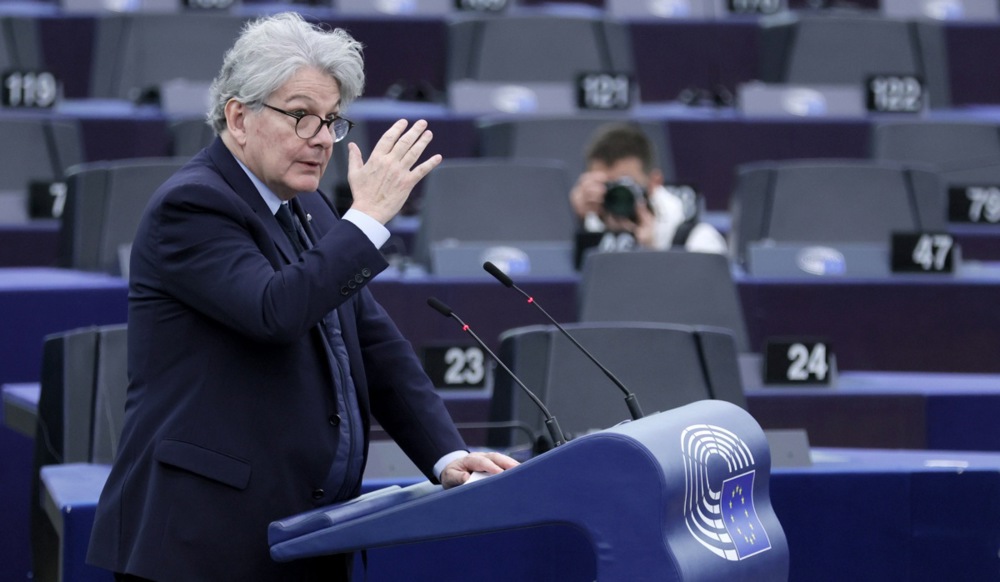Michael McGrath, the Irish politician hoping to become the next EU Rule of Law Commissioner, has been pressed on whether he would support a ban on Elon Musk’s X social media platform.
Speaking at his approval hearing in the European Parliament, McGrath expressed complete support for the European Union’s Digital Services Act (DSA), rebuffing claims that the Brussels legislation targets freedom of speech, although he added that free speech was not an “absolute right”.
“We have to achieve an overall balance but it is not an absolute right,” he said.
“If it crosses certain lines, then we need to have a system to intervene and respond to protect our citizens.”
He was less forthcoming when it came to specifics, with Alternative for Germany MEP Mary Khan pushing him on whether his support for the DSA would mean he backed a ban on X.
“The former commissioner, Thierry Breton, had a number of clashes with Elon Musk concerning X and its apparent lack of content moderation. Breton even went as far as to propose large fines for X if it did not comply,” she said.
“Elon Musk has always made it clear that he stands for free speech and freedom of expression, a view that is also shared by my party and also by citizens in Germany.
“Will you use the same aggression to force Musk and X to comply with the DSA? What will the consequences for X if they refuse? And lastly, would you ban it from being used in the European Union if X does not comply?” Khan added.
McGrath refused to give a straight answer to the question, instead opting to push responsibility for the issue to his fellow Commissioner-designate Henna Maria Virkkunen, who is looking to be handed the so-called “Tech Sovereignty” portfolio.
“There are very extensive powers within the Digital Services Act that in certain circumstances can be deployed by the relevant authorities,” he said, adding that the EU’s 2022 code of practice on disinformation would soon become a mandatory requirement for platforms such as X.
“But the core implementation of the Digital Services Act does come under my colleague EVP-designate Virkkunen,” he added, saying he also “looked forward to working with her and ensuring the full implementation of the DSA”.
McGrath’s non-committal answer came amid issues his colleagues in Ireland have been having with tech companies.
Despite backing increased EU regulation of the market, the country’s government has become increasingly reliant on tax receipts originating from Big Tech there, with more than a quarter of the State’s 2023 intake coming from corporation tax receipts.
Ireland will now be disproportionately responsible for regulating major technology companies in the EU due to the number of major social media corporations having their HQs in the country. Its new media regulator, Coimisiún na Meán, will wield a degree of control over the likes of X, Meta, and Alphabet.
Jim Jordan, chairman of the powerful House Judiciary Committee, says Breton has sent an “inaccurate” letter to his committee in an attempt to deny he was threatening to force Musk into censoring content.https://t.co/IqTGcSrSQm
— Brussels Signal (@brusselssignal) September 10, 2024





